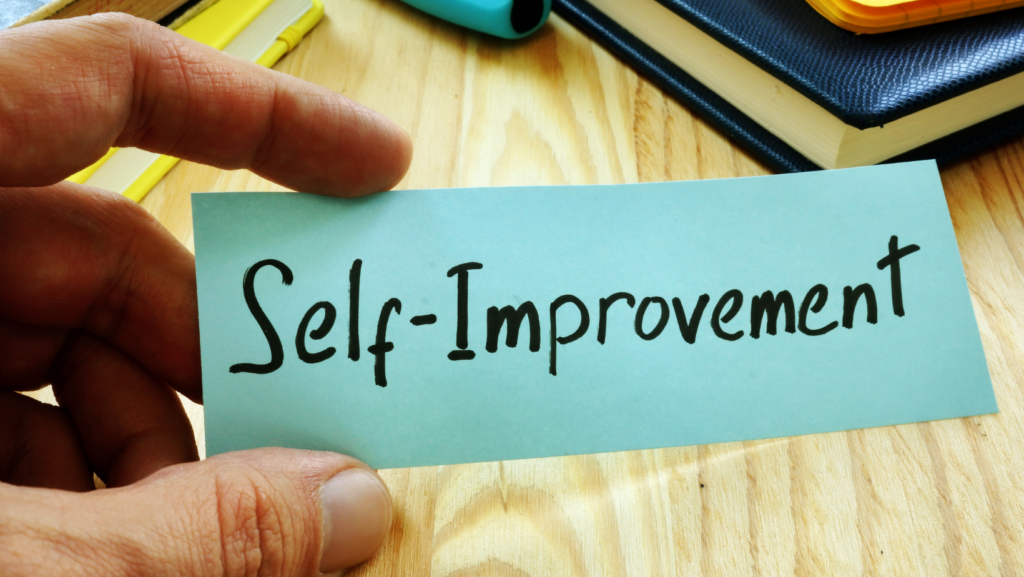Striving for self-improvement is a journey that never ends. It’s the pursuit of growth, the constant quest to become the best version of oneself. But where does one start? The answer lies in setting clear, achievable self-improvement goals.
In this digital age, where distractions are at an all-time high, having a roadmap for personal growth is essential. This article will delve into the art of setting self-improvement goals that are not only achievable but also fulfilling.
So, whether you’re looking to boost your confidence, improve your health, or simply want to learn a new skill, setting the right goals can make all the difference. Get ready to embark on a journey of self-discovery and growth. The path to a better you starts here.
Self Improvement Goals

Decoding self improvement goals entails knowledge of what they encapsulate and their pivotal role in an individual’s life. This section expounds on these concepts, mapping out a clear projection of self improvement.
Self improvement, often framed as personal development, boils down to a conscious effort aimed at enhancing one’s life quality. It encompasses the augmentation of professional competencies, personal skills, or other spheres of reconciliation such as relationships. Therefore, it embodies a holistic approach designed at sparking a positive change in oneself. The specifics of self improvement differ based on factors such as an individual’s needs, aspirations, and unique contexts. For instance, it might involve improving public speaking skills for one person, while others might focus on cultivating a healthier diet practice.
The Importance of Self Improvement Goals

Self improvement goals anchor a going journey toward personal growth, serving as navigational points steering individuals toward emotional, mental, and physical evolution. They’re instrumental not just in delineating what one aspires to achieve but also in shaping the path towards those aspirations.
Defined goals translate vague aspirations into concrete milestones, bringing clarity and focus to efforts for personal growth. For example, an abstract desire to enhance one’s fitness level takes tangible form with goals like “Run a 5K in under 30 minutes” or “Reduce daily sugar intake by 50%.” Such specific targets delineate a clear route towards fitness improvement, allowing for focused effort and measurable progress.
Furthermore, these goals enable tracking progression and celebrating small victories, fostering intrinsic motivation. They play a crucial role in maintaining momentum, especially when the journey becomes challenging.
Moreover, setting and pursuing self improvement goals entwine accountability, a critical habituating aspect fostering consistent growth. It’s a powerful reminder that one is in charge of their personal evolution. Predictably, this narrative augments self-efficacy and boosts one’s belief in their capacities, driving unstoppable growth.
Common Self Improvement Goals and How to Achieve Them
Venturing on the path of self-improvement aids growth and development. Setting tangible, strategic goals refines this journey. Let’s delve into some common objectives and their approaches.
Improve Communication Skills
Enhancing communication skills tops the self improvement goals list for many. Effective communication goes beyond talking; it encapsulates listening, understanding, and responding. Augmenting these areas paves the way for better relationships and career prospects.

- Active Listening: This involves concentrating on, responding to, and remembering what someone says. An improved attention span and more engaged conversations are benefits one can reap.
- Expressing Clearly: Clear articulation of thoughts and feelings prevents misunderstandings. Practicing this skill enables the expression of ideas in a precise, understandable manner.
- Optimized Written Communication: A focus on grammar, tone, and structure enhances written communication. Regular writing exercises can contribute to this improvement.
Cultivate Empathy and Emotional Intelligence
Empathy and emotional intelligence form another core segment of self improvement goals. These attributes influence interpersonal relationships by fostering understanding and respect.
- Empathetic Listening: Listen to understand, not just to respond. Understanding and acknowledging others’ feelings enhances empathy, bolstering personal, and professional relationships.
- Emotion Management: Being aware of one’s emotions and handling them effectively falls under emotional intelligence. Cultivating it encourages rational thinking and decision-making.
- Social Skills: Nurturing social skills betters interactions with others. Attending social events and actively participating in group activities can help improve these skills.

